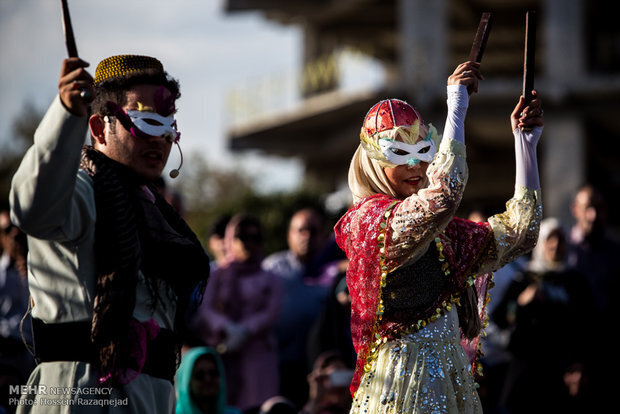Iran’s Ritual and Traditional Theater Festival to host specialized research sessions in Tehran

TEHRAN- The 22nd edition of the International Ritual and Traditional Theater Festival will feature five specialized research sessions, scheduled to take place from September 25 to 29 at the Mashahir Hall of Tehran's City Theater Complex, starting at 3:00 PM daily.
These academic gatherings will delve into various aspects of Iran’s rich cultural heritage, including storytelling in traditional performances, the evolution of rituals into contemporary drama, and the global tradition of puppet shows.
Notable scholars and artists from Iran and abroad will participate, with sessions moderated by prominent experts such as Davoud Fat'hali-Beigi, Rahmat Amini, Fahimeh Mirza Hosseini, Nazila Nourishad, and Mohammad Hossein Nasserbakht.
Among the distinguished participants at the festival are also Luiz André Cherubini from Brazil, Stefano Giunchi from Italy, Amela Vucenovic from Serbia and Nazli M. Ümit from Turkey.
Their presence enriches the event, fostering a valuable exchange of ideas and cultural perspectives between Iran and the international community.
The festival also hosts the 10th International Seminar on Ritual and Traditional Performances, organized by Ebrahim Galehdarzadeh, which will be held in Tehran and continues its tradition of engaging researchers, students, and artists from across the globe.
The 22nd International Ritual and Traditional Theater Festival, chaired by Siavash Sattari, will be held in three sections: educational-research, open-air, and stage performances.
The educational courses concluded on September 15, and the festival’s seminars and sessions will run until October 3, followed by non-competitive performances starting October 4, marking the closing chapter of the culturally significant event.
The 22nd International Ritual and Traditional Theater Festival is a significant cultural event dedicated to celebrating and preserving Iran’s rich heritage of indigenous performing arts.
The festival aims to showcase the deep spiritual and cultural essence of Iran through various traditional performances rooted in local beliefs, rituals, and language. These vibrant traditions are not just relics of the past but living expressions that continue to flow through Iran’s cultural fabric, contributing meaningfully to the present and shaping the future.
The festival is organized with an educational and research-oriented perspective, focusing on the conservation, reinterpretation, and continuity of these traditional art forms. Under the slogan “Iranian Performances for All the People of Iran,” the event will feature three main sections: workshops and training courses, research seminars, and stage performances.
The workshops and training courses aim to discover and nurture new talents across various traditional performance genres in different provinces of Iran. These genres include shadow puppetry, joyful performances like Siah-bazi, narrative arts such as Naqqali, Pardeh-khani, and Shahnameh recitations, traditional puppet shows, and folk dances. Selected students from these workshops will have the opportunity to present their works in a national symposium, fostering a competitive environment that encourages excellence.
In addition to training, the festival features several performance categories. Indoor stage performances include new productions designed specifically for indoor venues, based on Iranian rituals and theatrical methods, with a maximum of 10 selected pieces.
These productions are non-competitive but receive financial support, depending on the project’s scope and needs. Outside performances encompass open-air shadow puppet shows, lively performances, storytelling arts, traditional puppet shows, and folk rituals.
The festival also emphasizes virtual content production, inviting creators to develop innovative digital content such as videos, animations, and podcasts that depict Iranian folk traditions, rituals, and storytelling. The top three creators in each category will receive financial prizes, and their works will be showcased over the following years, promoting widespread awareness and appreciation of Iran’s intangible cultural heritage.
SAB/
